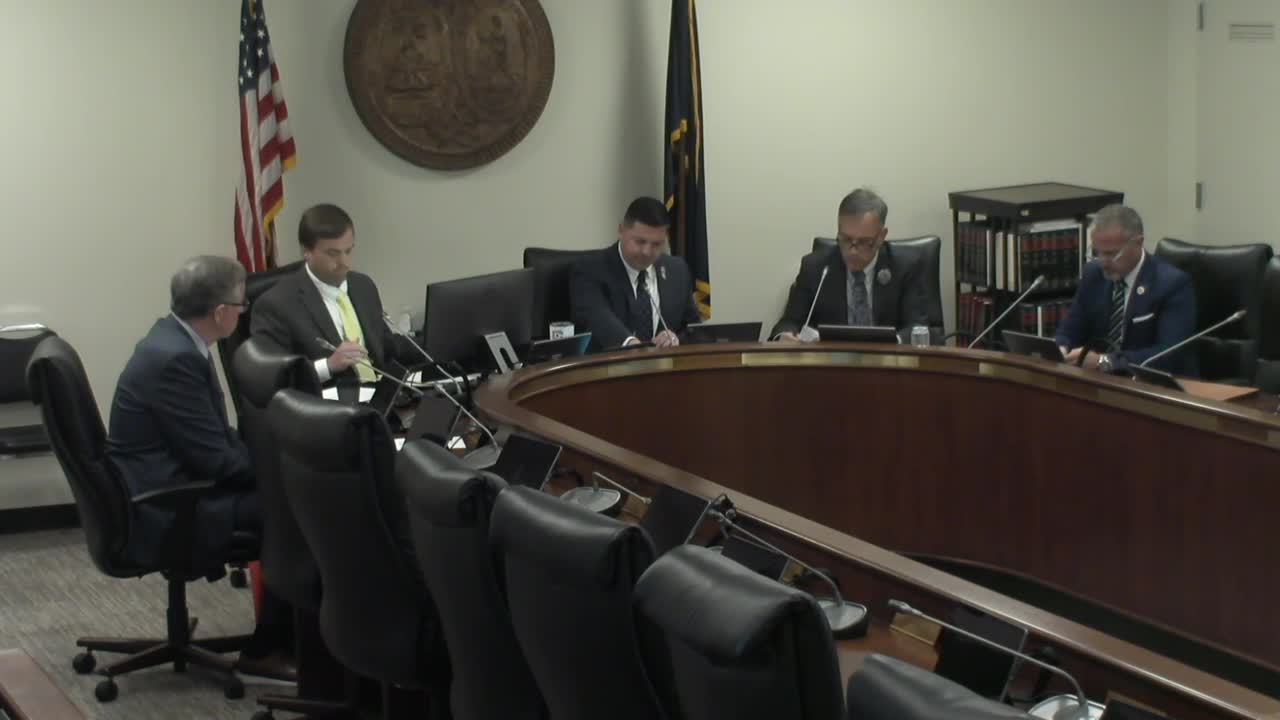Subcommittee backs civil remedies bill for unauthorized intimate-image disclosures (H3049), plans AI-definition amendment
Get AI-powered insights, summaries, and transcripts
Subscribe
Summary
The artificial intelligence, cybersecurity and special law subcommittee voted 3-0 to give House Bill H3049 a favorable report while agreeing to draft a clarifying amendment to explicitly include AI-morphed images where the depicted person is identifiable.
The artificial intelligence, cybersecurity and special law subcommittee voted 3-0 to give House Bill H3049 a favorable report, while agreeing to work on a definitional amendment to more explicitly cover AI-morphed intimate images.
Representative Travis Moore (chair) said the bill complements H3058—addressing civil remedies while H3058 addresses criminal liability—and that reviewing both ensures a comprehensive approach for victims. Representative Weston Newton is identified in the transcript as the bill’s introducer.
House Bill H3049 would create a civil cause of action for a person harmed by the intentional or threatened disclosure of a private intimate image without consent. Under the bill’s definitions as presented, a plaintiff must show the disclosure or threatened disclosure was intentional, the depicted person is identifiable and the image was private. The bill’s definition of intimate image covers photographs, films, videos or similar media that show an identifiable individual’s uncovered intimate body areas or depict the individual engaged in sexual conduct.
Remedies available under H3049 include economic and noneconomic damages, statutory damages up to $10,000, disgorgement of any monetary gain the defendant obtained from the disclosure, punitive damages where permitted, and attorney’s fees and costs. The bill also permits injunctive relief and provides for protective orders to preserve a plaintiff’s identity and privacy during litigation. H3049 sets a general three-year statute of limitations for unauthorized disclosures and a four-year limit for threats to disclose; if the depicted person was a minor at the time of the threatened disclosure, the statute of limitations does not begin to run until the person turns 18.
Members asked whether the bill’s language would cover digitally altered or AI-morphed images. Staff and members noted the bill’s current definition does not explicitly mention machine-learning–generated or morphed images but uses “similar medium,” which could be read to include such images if the person depicted remains identifiable. The subcommittee agreed to work on a clarifying amendment—potentially borrowing language from H3058’s machine-learning definition—to be filed before full committee so the civil remedy statute explicitly addresses AI-altered images when the victim is identifiable.
The bill includes exceptions for disclosures made in good faith to law enforcement or in legal proceedings, for medical contexts, and for matters of public concern. It also includes limited parental or guardian exceptions but excludes disclosures made for illegal, harmful, or sexually gratifying financial purposes.
After discussion, the subcommittee ordered a roll-call vote and gave H3049 a favorable report by a vote of 3-0. Representative Travis Moore, Representative Ryan McCabe and Representative Paul Wickenheimer each recorded “aye.” Members instructed staff to prepare a definitional amendment on AI-altered images for consideration in full committee.
